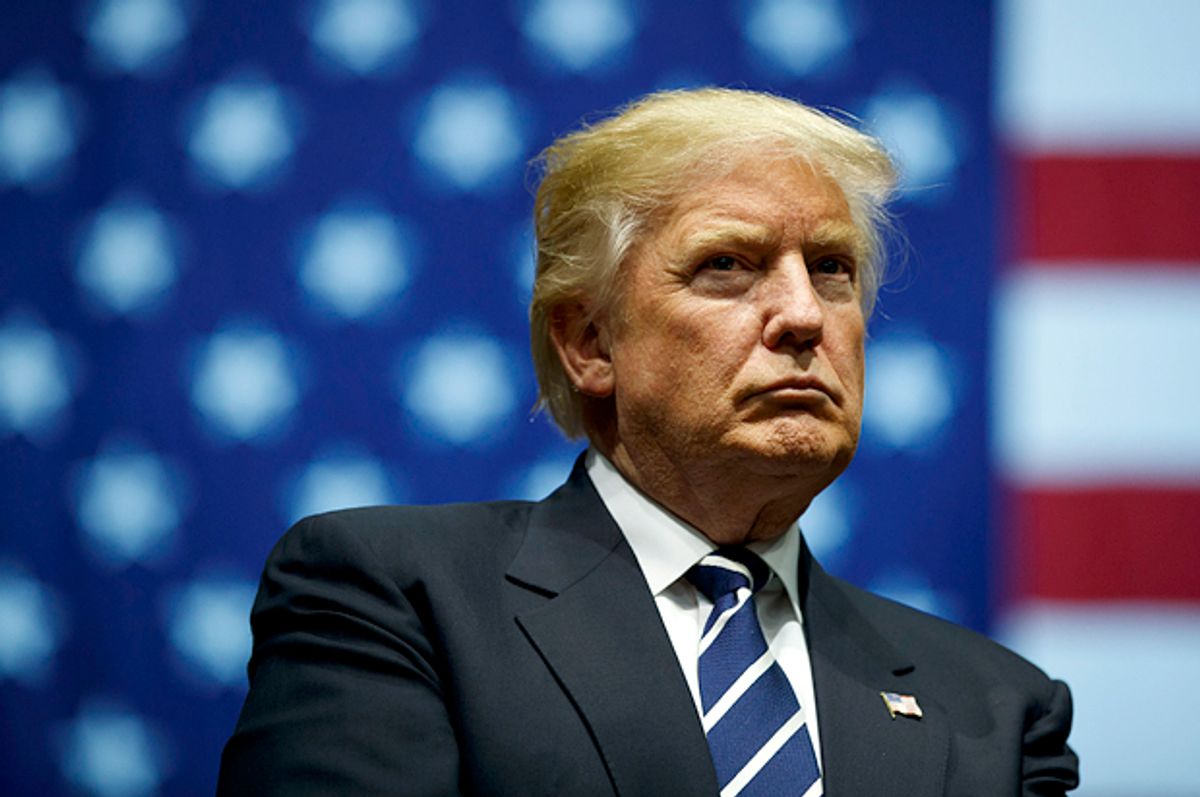Donald Trump may be worried that, if Alexander Hamilton's reasoning from 1788 prevails in 2016, he may wind up being president-elect no more.
Thus Trump is warning that a Colorado lawsuit brought by two Democratic members of the Electoral College — Polly Baca and Robert Nemanich — could harm his bid to become president.
“It is little exaggeration . . . to say that this lawsuit threatens to impair the interests of the president-elect and the Campaign,” wrote attorney Christopher Murray on Trump’s behalf in a filing submitted to the U.S. District Court of Colorado. The lawsuit aims to deem unconstitutional the state laws that bind electors to the candidates who received the most votes in their states, as Politico reported on Monday.
Although Colorado voted for Clinton, Baca and Nemanich are hoping to invalidate the laws in the 29 states that prohibit "faithless electors." These states include Alabama, Alaska, California, Colorado, Connecticut, Delaware, Florida, Hawaii, Maine, Massachusetts, Minnesota, Michigan, Mississippi, Montana, Nebraska, Nevada, New Mexico, North Carolina, Oklahoma, Ohio, Oregon, South Carolina, Tennessee, Utah, Vermont, Virginia, Washington, Wisconsin and Wyoming in addition to the District of Columbia, according to the National Conference of State Legislatures.
While most of these states impose fines and other civil penalties in the event that an elector does not remain bound to the candidate with the most votes, South Carolina can impose criminal penalties while three states — North Carolina, Michigan, and Utah — deem faithless voting an automatic resignation, with a replacement subsequently appointed.
A strong case can be made that these laws are unconstitutional. To understand why, one need look no further back than Federalist Paper No. 68, which was authored by Alexander Hamilton in 1788:
"The process of election affords a moral certainty, that the office of President will never fall to the lot of any man who is not in an eminent degree endowed with the requisite qualifications."
This logic was used to form the Hamilton Electors, a bipartisan group of rogue electors of the Electoral College who hope to peel 37 Republican electors away from Trump and throw the election to the House of Representatives — or, perhaps, unite 270 electors around a moderate Republican alternative like Gov. John Kasich of Ohio.
Hamilton also warned that a presidential election could be corrupted by "the desire in foreign powers to gain an improper ascendant in our councils," which is why 10 members of the Electoral College wrote an open letter to James Clapper, the director of national intelligence, on Monday demanding all the information pertaining to potential Russian interference in the 2016 presidential election.
Trump's attorney in Colorado, however, is ignoring these arguments and instead erroneously accusing the lawsuits of attempting to undermine the very system that they're trying to protect.
“Of course, President-elect Donald Trump and Vice President-elect Mike Pence have more than enough electoral votes to secure their respective offices,” Murray wrote. “Plaintiffs’ lawsuit, however, threatens to undermine the many laws in other states that sensibly bind their electors’ votes to represent the will of the citizens, undermining the Electoral College in the process. That is why the President-elect and his Campaign seek to intervene in this case.”
Later in the filing, however, Murray tipped his hand perhaps a little too far.
"In this lawsuit, the interests of the President-elect and his Campaign are clear," he wrote. "The President-elect won the majority of electoral votes in the several states. Many of those states (like Colorado) require their electors to vote for the candidates who won the most votes on election day. Should the Court conclude (despite decades of legal and historical precedent to the contrary) that it is unconstitutional for Colorado to bind its presidential electors, similar statutes in other states where the President-elect won may also be in jeopardy."

Shares